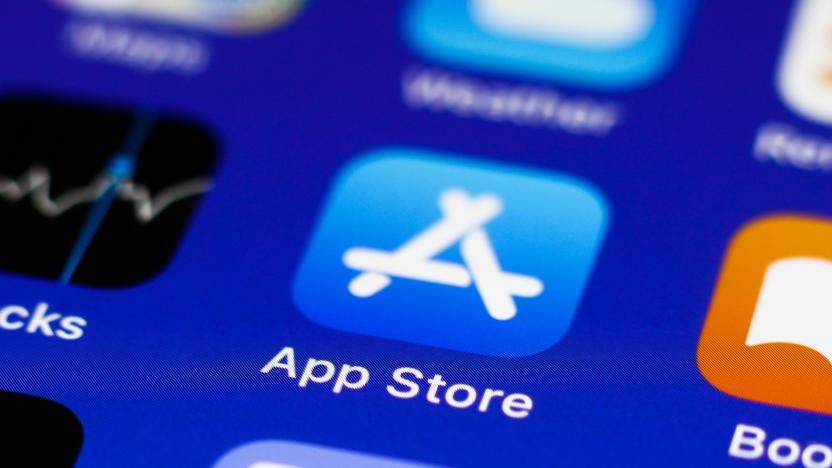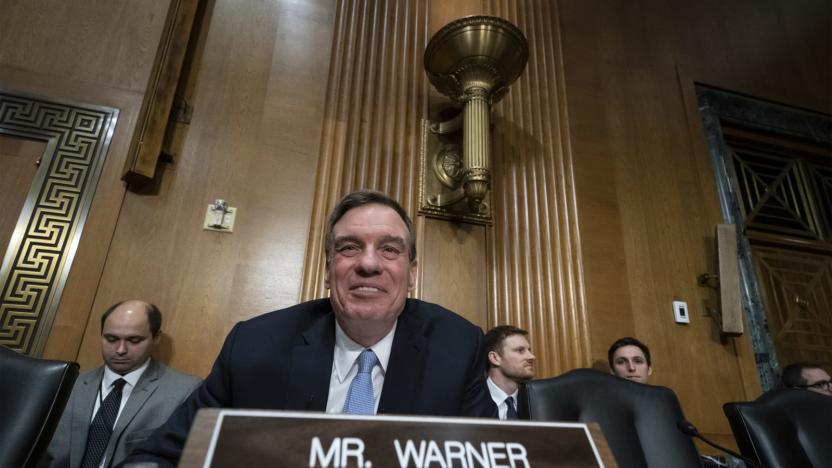bipartisan
Latest

House bill takes aim at iOS and Android app store competition
The Open App Markets Act is a companion to a Senate bill that was introduced earlier this week.

Senate bill aims to make user data 'portable' across social networks
Three senators think they have a way to address some of the antitrust concerns around social media companies. Today, Sens. Mark R. Warner (D-Virginia), Josh Hawley (R-Missouri) and Richard Blumenthal (D-Connecticut) will introduce a bill that would force social media companies to make user data "portable," so that it can be easily transferred to competing (read: smaller) services.

US Senate reaches deal on self-driving cars
Democrats and Republicans can't get on the same page about most things, but robots driving cars is apparently a-okay no matter your political affiliation. After the House approved a bipartisan pact, both sides in the Senate agreed to a deal making it easier for Ford, GM and other automakers to get self-driving cars on public roads. "We expect adoption of self-driving vehicle technologies will save lives, improve mobility for people with disabilities, and create new jobs," Senators John Thune (R-SD) and Gary Peters (D-MI) said in a statement.

Bipartisan bill will stop NSA's bulk phone call data collection, but it might not go far enough
Following Edward Snowden's leaks about the NSA collecting massive amounts of data about phone calls flowing through several companies, President Obama announced limitations on the use of that data in January and said more reforms would follow. Now, the New York Times, Wall Street Journal and Washington Post report a bipartisan bill is about to be unveiled that makes several large changes to the NSA's controversial bulk collection of phone call metadata. A bill that will be unveiled tomorrow in the House of Representatives by Mike Rogers (R-MI) and "Dutch" Ruppersberger (D-MD) will instead see phone companies store the data only as long as they normally would (18 months or so, under other federal regulations). If the NSA suspects a terrorism link, it can make requests for information from specific phone numbers, and related records up to two hops away. What's likely to disappoint privacy advocates however, is that the NSA is only required to send a copy of the directive to a court for review after record collection has already started. On the other hand, according to the Post, it would have the make a determination if a number is linked to terrorism "promptly" and if it does not decide that it's linked "agent of a foreign power," it will be expunged. We should find out exactly what's in the bill when it's introduced tomorrow but there's one other note to remember -- 90-day approval for the NSA's current bulk collection program ends Friday, and is likely to be renewed at least one more time while this and other bills are sorted out.

House passes bill that would call for a single website tracking federal spending
The last time a proposed law captured our attention it was so widely loathed it was never even put to a vote, but today we bring you the kind of no-brainer legislation that seems to have strong support on both sides of the aisle. The US House of Representatives has passed the Digital Accountability and Transparency Act (DATA), a bill that calls for the creation of an independent board to log all federal spending on a single, centralized website. What's more, these expenses need to be recorded with identifiers and markup languages that make them more easily searchable. As Computerworld notes, the vote happens to come on the heels of a recent dust-up involving the US General Services Administration spending $823,000 on a conference in Vegas -- precisely the sort of excess this proposed website would be designed to expose. The next step, of course, is for the bill to win Senate approval, though for now it seems the legislation has garnered strong bi-partisan support: in a rare showing, all of the lawmakers who discussed the DATA Act on the House floor argued in favor of it.

US Senate passes patent system reform bill, Obama expected to sign into law
Think it's time to change our patent system? So does Congress. Yesterday, the Senate approved the America Invents Act by an 89-8 vote that could bring about the most drastic changes to the US Patent and Trademark Office (USPTO) in five decades. Under the bill, which the House approved back in June, patents would be awarded not to the first person to invent a technology, but to the first one to actually file with the USPTO, bringing US policy in line with protocol adopted in most other countries. It also calls for a streamlined application process and would allow the USPTO to charge set fees for all apps. The revenue generated from these fees would go directly to a capped reserve fund, allowing the office to retain the lion's share of the money, rather than funneling much of it to Congress, as had become the norm. Supporters say this extra revenue will give the USPTO more power to chip away at its backlog of some 700,000 patent applications, while a new third-party challenge system will help eliminate patents that should've never received approval in the first place. Opponents, meanwhile, criticized the bill for not eliminating fee diversion altogether (an amendment that would've placed more severe restrictions was ultimately killed, for fear that it would jeopardize the bill's passage), with Washington Democratic Senator Maria Cantwell questioning the legislation's impact on small businesses, calling it "a big corporation patent giveaway that tramples on the rights of small inventors." But Senator Patrick Leahy, a Vermont Democrat who sponsored the bill, argued that yesterday's approval marks a major and historic inflection point in US patent policy: The creativity that drives our economic engine has made America the global leader in invention and innovation. The America Invents Act will ensure that inventors large and small maintain the competitive edge that has put America at the pinnacle of global innovation. This is historic legislation. It is good policy. The America Invents Act will now make its way to President Obama's desk, where it's expected to receive his signature. For more background on the legislation, check out the links below.





